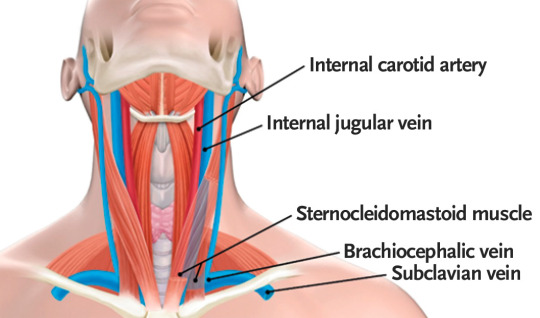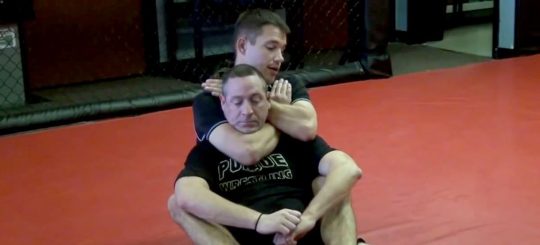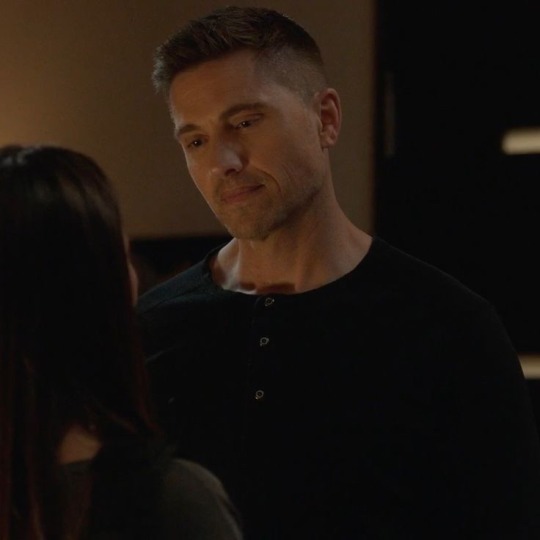#psychological safety at work
Text
Every company needs a dedicated manager to administer their HR software due to several important reasons. HR software, also known as human resources management systems (HRMS) or human resources information systems (HRIS), plays a crucial role in managing various aspects of an organization's workforce, from recruitment and employee onboarding to performance management and payroll processing. Having a dedicated manager responsible for administering this software ensures its effective implementation, maintenance, and utilization within the company. A dedicated HR software manager brings expertise, organization, and efficiency to the administration of HR software within a company. Their role encompasses system optimization, data management, user support and training, integration and upgrades, compliance management, and vendor relationship management. Having a skilled professional in charge of HR software administration ensures that the system functions effectively, supports HR processes, and contributes to the overall success of the organization.
#transform your workplace#employee satisfaction#employee performance#employee relations#human resources#employee management#employee happiness#human resource management#lanteria hr#hr software#company culture#work environment#workplace culture#employee wellbeing#workplace communication#workplace environment#work environment workplace culture#psychological safety at work#servant leadership#best hr software#hr system
0 notes
Link
#workplace safety course#emotional safety in the workplace#work health and safety course#workplace health and safety training#employee safety training#psychological safety at work#workplace safety and health course
1 note
·
View note
Text
[i'm tired of waiting for the world to be beautiful]
2022-02-24 14:47
let's talk about the loving eyes of an old dog staring down a shotgun barrel,
the death of this author, and other things common in my workplace.
what greater harm than supplication?
the third drop of water falling on your forehead,
not yet a sledgehammer, more an irritant.
you are feeling excessively baptized.
so tired of rivers and heads on platters
you mistook the stryx for the lethe and,
in an ageless hunger for absolution,
walked into the water until your head went under
—you can live with that?
—yes, but you will never stop wanting what you can't have
the person with arrogance to think i could survive this unchanged died
and they left me behind, an unlucky echo-child born of productivity.
the other shining me: backfacing angel of history
cast a hurricane: all hungry mouth and mass homelessness
so that's what they made me and that's what i am.
—i thought it would be different this time
—why?
—i thought you would be different
—(pained laughter)
the deathly afraid butterfly cannot crawl back into the cocoon
not even if it prefers familiarity to growth, suffers from vertigo,
and would rather be loved than be free.
#this one's about capitalism#and how you think you can get a job and stay how you are which is a radical queer contradiction#you think you can work and not be consumed you think you can avoid becoming a part of the machine that wounds and kills people like you#but you can't and it makes you someone else and you can't go back because it is giving you this illusion of safety you now need to survive#the society that wounded you is profiting off the psychological dysfunction (fawn response) its cruelty gave you#and the version of you that thought it could do that watches in horror as you simper at the feet of the people who would see you dead#poetry#poets on tumblr#walter benjamin's text on the angel of history (paul klee) is underpinning this piece#clavain writes#clavain art
5 notes
·
View notes
Note
one piece? more like mid piece
If this is mid think about how high we can still go! Such opportunity! Sky isn't the limit anymore!
#i had to#but honestly this is kind of true because if one piece is REALLY mid so... im here for whats better#i mean i know a lot of works that concept writing or complexity wise are better than one piece so i know theres a lot of room out there#but here i am coming back to one piece from all of those masterpieces to my comfort zone of safety hope and inspiration#try to take it from Blindsight. I DARE YOU#and for me it's one of rare masterpieces out there#this book is everything but safe place#and i love it#but after long week of work i dont need psychological cosmic horror. i need safe uplifting safe place when i feel like home#imperfect as it is#so yeah i will take that mid so i can venture to projects that can shatter my existence to the core#just to come back to op for sould shattering characters backstory lmao#anyway#yeah#back to ffxiv#one piece
4 notes
·
View notes
Text
Mindful Team Building Events: Professional Facilitation for Enhanced Awareness and Collaboration
Fostering strong connections and effective collaboration among team members is crucial for the success of any business or organization. Traditional team building activities often involve trust falls and rope courses, but there’s a growing trend towards a more mindful approach. Enter mindful team building events, where professional facilitation helps teams cultivate awareness and collaboration in unique and impactful ways. Let’s delve into what these events entail and why they’re gaining popularity.
Understanding Mindful Team Building
So, what exactly does it mean to have a mindful approach to team building? Well, it’s all about being present in the moment and fostering a deeper understanding of oneself and others. Mindfulness practices, such as meditation and deep breathing exercises, are incorporated into team-building activities to encourage participants to slow down, tune into their thoughts and feelings, and develop empathy and understanding.
The Importance of Professional Facilitation
While anyone can lead a trust fall exercise, facilitating mindful team building events requires a certain level of expertise. Professional facilitators are trained to create a safe and supportive environment where team members feel comfortable exploring their thoughts and emotions. They guide participants through activities and discussions, ensuring everyone has a voice and that insights gained are translated into actionable strategies for collaboration.
Enhancing Self-Awareness
One of the primary goals of mindful team building is to enhance self-awareness among team members. When individuals understand their own strengths, weaknesses, and communication styles, they can better navigate interactions with others. Through activities like mindfulness meditation and reflective journaling, participants gain insights into their thought patterns and emotional responses, helping them develop a greater sense of self-awareness.
Cultivating Empathy and Understanding
In addition to self-awareness, mindful team building events also focus on cultivating empathy and understanding among team members. Through exercises like perspective-taking and active listening, participants learn to see situations from different viewpoints and appreciate the experiences and feelings of others. This fosters a sense of connection and mutual respect within the team, laying the foundation for effective collaboration.
Improving Communication
Effective communication is essential for any successful team, and mindful team building events can help improve communication skills in a meaningful way. By practicing mindful communication techniques, such as speaking with intention and active listening, team members learn to communicate more clearly and authentically. This reduces misunderstandings and conflict, leading to smoother collaboration and better outcomes.
Building Trust and Psychological Safety
Trust is the bedrock of any healthy team dynamic, and mindful team building events are designed to strengthen trust among team members. Through vulnerability exercises and team bonding activities, participants learn to open up and support one another in a non-judgmental environment. This creates a sense of psychological safety where team members feel comfortable taking risks, sharing ideas, and expressing their true selves without fear of criticism or rejection.
Fostering Creativity and Innovation
Mindful team building events can also spark creativity and innovation within teams. By breaking free from traditional constraints and exploring new ways of thinking and problem-solving, participants are encouraged to think outside the box and generate fresh ideas. Creative activities like improvisation and brainstorming exercises challenge team members to tap into their creativity and collaborate in innovative ways, leading to breakthroughs and new opportunities.
Strengthening Team Cohesion
Ultimately, the goal of mindful team building is to strengthen team cohesion and camaraderie. By fostering a sense of connection and belonging, teams can overcome challenges together and achieve greater success. Mindful team building events create lasting bonds among team members, laying the groundwork for a supportive and collaborative work environment where everyone feels valued and appreciated.
Nurturing Resilience and Adaptability
In today’s ever-changing business landscape, resilience and adaptability are essential traits for success. Mindful team building events help teams develop these skills by encouraging them to embrace uncertainty and navigate challenges with grace. Through resilience-building exercises and mindfulness practices, teams learn to bounce back from setbacks and adapt to change more effectively, ensuring they can thrive in any environment.
Enhancing Emotional Intelligence
Emotional intelligence is a key predictor of professional success, and mindful team building events provide an opportunity for teams to enhance this critical skill. By engaging in activities that promote self-awareness, self-regulation, and empathy, team members develop a deeper understanding of their own emotions and the emotions of others. This enables them to navigate interpersonal dynamics more effectively, build stronger relationships, and make more informed decisions.
Promoting Work-Life Balance
Maintaining a healthy work-life balance is essential for employee well-being and productivity. Mindful team building events emphasize the importance of self-care and stress management, encouraging team members to prioritize their physical and mental health. By incorporating activities like guided relaxation and mindfulness walks, teams learn practical strategies for reducing stress and finding balance in their lives, ultimately leading to greater job satisfaction and performance.
Encouraging Continuous Growth and Development
Professional growth and development are ongoing processes, and mindful team building events provide a platform for teams to continue learning and evolving together. By fostering a growth mindset and a culture of feedback and reflection, teams are encouraged to embrace new challenges and opportunities for learning. This continuous growth mindset not only benefits individual team members but also strengthens the team as a whole, ensuring they remain adaptable and resilient in the face of change.
Sustaining Long-Term Results
The impact of mindful team building events extends far beyond the initial experience, leading to sustained improvements in team dynamics and performance over time. By integrating mindfulness practices into their daily routines and communication strategies, teams are better equipped to handle challenges and collaborate effectively on an ongoing basis. This sustainable approach to team building ensures that the benefits of mindfulness endure long after the event has ended, creating lasting positive change within the organization.
Conclusion
In today’s fast-paced and competitive business world, the importance of strong team dynamics cannot be overstated. Mindful team building events offer a refreshing alternative to traditional activities, providing teams with the tools and techniques they need to cultivate awareness, collaboration, and connection. By investing in professional facilitation and embracing mindfulness practices, organizations can foster a culture of empathy, communication, and creativity that drives innovation and success. So why not take a mindful approach to team building and see the transformative impact it can have on your team?
Pin or save this post for later!
Share in the comments below: Questions go here
#mindfulness#team building#mindful team building#professional facilitation#enhanced awareness#collaboration#team collaboration#actionable strategies#self-awareness#team members#thought patterns#emotional responses#different points of view#effective collaboration#improve communications#psychological safety#self-regulation#work-life balance#Sustainable Work Practices
0 notes
Text
There’s No “Family” in Team
The people you work with your are not your family. That's a good thing!
There’s no “I” in team! That’s what “they” say anyway. It’s also quite true.
The opposite of that is also true. There is no “family” in team.
This is a good thing. No wait, it’s a great thing!
Let me explain.
There are different types of groups that exist and those groups each have their own norms and behaviors specific to them.
Family is a group of people related to each other by birth,…

View On WordPress
#boundaries#cohesive team#communication#family#psychological safety#relationships#team#teamwork#well-being#work
0 notes
Text
How Does an Advanced Diploma Prepare Leaders for Challenges?

Leadership is a critical aspect of any organisation or team, requiring individuals to navigate complex challenges while guiding others towards success. It's imperative for leaders to be well-prepared to face the multitude of obstacles that may arise in their roles.
In this blog post, we'll delve into the significance of being equipped for leadership challenges and how an advanced diploma of leadership and management Australia can effectively prepare individuals for these responsibilities.
Understanding the Role of a Leader
Leaders play a pivotal role in influencing the direction and performance of a team or organisation. They are responsible for setting goals, making crucial decisions, and inspiring their team members to achieve success.
However, the path of leadership is riddled with challenges, including but not limited to managing conflicts, adapting to change, and ensuring effective communication within the team.
In addition to overseeing day-to-day operations, leaders must also strategise for the future, anticipate potential obstacles, and mitigate risks. It's evident that the role of a leader demands a multifaceted skill set and the ability to tackle diverse challenges with confidence and expertise.
The Benefits of an Advanced Diploma
An advanced diploma program serves as a comprehensive platform for individuals to hone their leadership skills and gain a deeper understanding of the complexities associated with leading a team or organisation. Through specialised courses and practical training, participants develop crucial competencies such as strategic thinking, emotional intelligence, and conflict resolution.
The knowledge acquired through an advanced diploma program also enhances problem-solving abilities and decision-making skills. Participants are exposed to real-world case studies and simulations that simulate leadership challenges, allowing them to apply theoretical concepts to practical scenarios. This hands-on approach equips individuals with the confidence and expertise needed to navigate complex leadership challenges effectively.

Real-world Applications
Leaders who have completed advanced diploma programs have showcased their ability to effectively navigate challenging situations in a variety of industries. For instance, in the healthcare sector, leaders with advanced diploma of leadership and management Australia have demonstrated their proficiency in managing crises, implementing strategic initiatives, and fostering a culture of continuous improvement within their organisations.
Moreover, the practical aspects of an advanced diploma program, such as internships and capstone projects, provide participants with first-hand experience in handling complex leadership challenges. These experiences not only reinforce theoretical learning but also prepare individuals to make well-informed decisions in high-pressure environments.
Networking and Resources
One of the invaluable aspects of pursuing an advanced diploma is the opportunity to connect with industry professionals and mentors. Advanced diploma programs often facilitate networking events, workshops, and mentorship programs, enabling participants to build meaningful connections within their respective industries.
These connections not only offer guidance and support but also open doors to new opportunities for professional growth and development. Additionally, individuals pursuing advanced diplomas have access to a myriad of resources, including workshops, seminars, and online platforms, which provide continuous learning and skill enhancement opportunities.
These resources serve as a valuable supplement to the knowledge gained through the program and contribute to the ongoing development of leadership capabilities.
Wrapping Up
An advanced diploma equips leaders with the essential skills and knowledge required to confront the myriad challenges inherent in leadership roles. By providing a comprehensive understanding of leadership dynamics, practical applications, and access to invaluable networking opportunities, psychological safety training for leaders programs effectively prepare individuals to tackle diverse challenges with confidence and expertise.
The benefits derived from such a program are not only instrumental in personal and professional growth but also contribute to the overall success of the teams and organisations led by these individuals.
#advanced diploma of leadership and management Australia#psychological safety at workplace#psychological safety in the workplace#psychological safety workplace#psychologically safe workplace#psychological safety Australia#psychological safety at work Australia#psychologically safe workplace Australia
0 notes
Text
The Importance Of Psychological Health And Safety Training In The Workplace

In today’s fast-paced and demanding work environments, the well-being of employees is of the utmost importance. While physical safety has always been a priority, organisations are now recognising the significance of psychological health and safety in the workplace. By implementing comprehensive training programs, companies can create a supportive and positive work culture that fosters employee well-being, productivity, and ultimately organisational success. In this blog post, we will explore the importance of psychological health and safety training and its benefits for both employees and employers.
Understanding Psychological Health and Safety
Psychological health and safety refers to the well-being and protection of an individual’s mental health in the workplace. It involves creating an environment that supports positive psychological states, prevents harm, and promotes the overall well-being of employees. This includes factors such as stress management, work-life balance, job satisfaction, effective communication, and the prevention of workplace harassment.
youtube
The Impact of Psychological Health and Safety on Workplace Productivity
A healthy work environment that prioritises psychological health and safety has a direct impact on employee productivity and performance. When employees feel supported, valued, and psychologically safe, they are more likely to be engaged, motivated, and committed to their work. On the other hand, workplaces that neglect psychological health and safety can experience increased absenteeism, reduced productivity, higher turnover rates, and increased healthcare costs.
The Role of Psychological Health and Safety Training
Psychological health and safety training plays a vital role in equipping employees and employers with the necessary knowledge and skills to create a mentally healthy workplace. It helps raise awareness about the importance of psychological health and safety, educates employees about the signs of mental health issues, and provides tools and strategies for maintaining a positive work environment.
Creating a Supportive Work Culture
Through effective training programs, organisations can foster a supportive workplace culture that promotes psychological health and safety. Training initiatives can focus on developing leadership skills, enhancing communication and conflict resolution, promoting work-life balance, and preventing workplace harassment. By empowering employees and managers with the right knowledge and skills, organisations can create an inclusive and empathetic work environment.
Benefits for Employees and Employers
Investing in psychological health and safety training yields numerous benefits for both employees and employers. Employees experience improved well-being, reduced stress levels, increased job satisfaction, and enhanced work-life balance. This leads to higher morale, increased productivity, and better employee retention rates. Employers, on the other hand, benefit from reduced absenteeism, lower healthcare costs, improved employee engagement, and a positive employer brand that attracts top talent.
Conclusion
Recognising the importance of psychological health and safety training in the workplace is essential for building a thriving organisation. By prioritising the well-being of employees and implementing comprehensive training programs, companies can create a positive workplace culture that fosters productivity, engagement, and overall organisational success. Investing in psychological health and safety training not only benefits employees but also yields long-term advantages for employers, making it a crucial aspect of any modern workplace.
This blog post was originally published here.
0 notes
Text
Choking Safety
I've been seeing some kind of scare-mongering type posts going around about choking during sex, so I wanted to address how to approach choking in a safe way.
Choking is not a 0 risk activity, but it is also not so dangerous that you will just randomly die either. Anyone who does martial arts will confirm that thousands of teenagers are being successfully trained to choke each other safely (for self defense) every day! There's no reason you can't learn to do it too.
First you should be familiar with some basic anatomy of the neck and throat:

The carotid veins on both sides of the neck and the trachea/windpipe in the center are the most important things to be aware of.
If you want to enjoy the psychological element of having someone's hands around your neck with relatively little risk, you can do "choking" play that avoids putting any pressure on those arteries or the trachea. As with all choking play, safety is highest when both parties are fully sober.
I'm not actually sure if there are people out there who are into having the windpipe or trachea blocked. This tends to hurt like fuck and cause an autonomic choking response. You'll know if you went too far center because generally the bottom will be like "WTH". I don't know if there is a way to do this play safely or not as I don't have experience with it. It probably carries some risk of the trachea collapsing which would be a hospital trip for sure.
Most choking play is done with the intention of cutting off the blood supply to the brain by applying pressure to both the left and right carotid arteries. This type of choking is not really "breath play" because of the way it works (though many people refer to it that way.) This creates a pleasant light headed feeling, but is also where the higher risk comes in. It often doesn't take long for a person to lose consciousness once these arteries are blocked, often less than 10 seconds.
Sometimes getting completely choked out is the goal, sometimes not. Either way, the top has to pay very very careful attention to every aspect of their bottom's body language. Once you realize that a person has lost consciousness, the choking must stop immediately. Because of this: the most dangerous way to do this kind of play is alone. (hence all the auto-erotic asphyxiation deaths you hear about)
It goes without saying that intoxication also dramatically increases the risks. It's not recommended to lose consciousness this way on a regular basis. It's just not good for your brain to repeatedly go through, especially in rapid succession. Generally, the more time spaced out between this type of play: the better.
Though some people may have medical conditions that make the risk higher, as long as you stop choking when you reach the desired headspace, this play is approachable. Anyone who's REALLY into the idea but feels unsure or scared, I highly recommend taking a few martial arts classes. MMA guys do this to each other all the time! For sports! The key is just stopping at the right time.
There are two main ways to go about blocking the carotid arteries. The main one used in martial arts and self defense is the rear naked choke.

This type of choke is incredible effective at choking someone out quickly and easily. The forearm and the bicep are squeezing each artery until the desired effect is achieved. The risk here is how quickly it works in combination with not being able to have a visual on your bottom's facial response.
When someone loses consciousness they will go limp and begin twitching somewhat. This is normal, and you should stop immediately if you notice those signs.
The more common method of choking play during sex is what looks more like typical choking. Facing your partner, using both hands.

You want to find the arteries with both hands, and use the meat at the base of your thumbs to apply gradually increasing pressure upwards towards your partner's head. You can keep the thumbs tucked to avoid accidental pressure on the windpipe. (Though this is not required so long as you remember not to apply pressure to the windpipe.)
This type of play has a few safety benefits. First, you can see your partner's face so it's more obvious when you can see they've hit a headspace that is desirable.
Additionally, it's just a little more difficult to find the arteries and push up on them correctly. If your goal is to get a little light headed without losing consciousness, this is more easily accomplished with this type of choke. However, losing consciousness is still a risk and both partners being fully alert will ensure the lowest risk environment.
I know choking play is incredibly popular, even 'vanilla' people participate in this type of play on a regular basis without really knowing the technical details. Most of them don't get seriously hurt...but knowing what you're actually doing with risky play is a base component of risk aware consensual kink.
Anyway I hope people find this helpful! Happy choking!!
3K notes
·
View notes
Text
Faten Abuhamda @fatenahmed, a mother of 3 from Gaza, has reached out to me and trusted me with her story. She wants me to share it with all of you.
Faten is accompanied by her husband, Ahmed, who is an amputee due to a previous war in Gaza, and their 3 children, Sama (7 years old), Loai (4 years old), and Yousef (10 months old)
This latest tragedy that's befallen the Abuhamda family starts on the first day of the war, nearly 8 months ago. The occupation forces struck right beside their home, and this is the first time of many that their family has had to evacuate where they are living. And from that day, their family has not known a single stable place to live.
Faten and her family have had to evacuate 3 times, and are now in Deir al Balah, but even that is not safe for them. They cannot afford to replace their children's clothing even. Nevermind the psychological mental anguish this has caused these very young children.
In order to make food for her family to eat, Faten is forced to cook on a campfire and the heat and smoke is irritating her throat. She and her husband are exhausted. And as the weather turns even hotter, they're forced to work under a scorching sun to make sure their children are fed everyday.
Everyday presents a new threat to their lives, whether it is to the artillery and massacres of the occupation forces or whether it is due to the horrible conditions they're forced to live under.
They need $18,000 to evacuate Gaza, and they've only got $1,449. Any amount you can donate would go to helping this family find a safe place away from the bombings, famine, and disease. Please donate and share as well.
#paptalk#faten abuhamda#fatenahmed#palestine#gaza#gaza fundraiser#gaza mutual aid#gaza families#gaza under attack#free gaza#free palestine
2K notes
·
View notes
Text
Preparing for HR Software Success and Key Steps Before Implementing an HRMS highlights the essential measures organizations should take before embarking on the implementation of an HRMS (Human Resource Management System) or any HR software. A successful HR software implementation requires careful planning and consideration. Firstly, it's crucial to conduct a thorough needs analysis to understand the specific requirements and challenges of the organization. Engaging key stakeholders and employees in the process ensures their buy-in and support throughout the implementation journey. Additionally, data cleanup and system readiness are essential steps to ensure a smooth transition to the new software. Adequate training and change management strategies should be in place to help employees adapt to the new system seamlessly. By meticulously preparing for the HR software implementation, organizations can optimize efficiency, enhance HR processes, and unlock the full potential of their workforce.
#lanteria hr#hr software#hrms#best hr software#payroll software#human resources#transform your workplace#employee satisfaction#employee performance#employee relations#employee management#human resource management#company culture#work environment#workplace culture#employee wellbeing#workplace communication#workplace environment#work environment workplace culture#psychological safety at work#servant leadership#hr system#implementing an hrms#hris
0 notes
Text
Psychological Safety A Followup...
A primer for psychological safety. What it is, how to find it, and how to avoid its counterpoint a toxic work environment
Psychological safety is a concept that has gained increasing attention in recent years, particularly in the workplace. It refers to the degree to which employees feel safe to take interpersonal risks, express their ideas and opinions, and ask questions without fear of being judged or punished. Psychological safety in the workplace is crucial for creating an environment that fosters innovation,…

View On WordPress
0 notes
Text
Been thinking a lot lately about romanced Astarion post-spawn ending.
Because like. The Funnest™ thing about cptsd is how much of it gets delayed. When you're trapped in a lengthy, ongoing traumatic situation, you do not have the ability to process and start healing your mental wounds. Your brain and body go into survival mode, and all that matters in the moment is that you somehow cope with the horrors. He wouldn't have been able to even begin dealing with the physical, mental and emotional toll of two hundred years of torture, brutalization and dehumanization while he was under Cazador's control; he is in constant danger, surrounded by sharks in the water, and survival means not letting them smell blood. He can't afford to fall apart, to show weakness. He is shockingly functional and competent in-game, partly because he has to be to work as a game character, but also partly because...it do be like that, to some degree. When death, for whatever reason, is not an option, you just have to shut down and keep going. People adapt in order to survive, and when we learn that showing an "injury" (physical or psychological) only gets us punished, we learn to hide it.
Early-game Astarion is terrified - of Cazador, of Godey, of being hunted down by his siblings, of being staked or sold off at the first opportunity by Tav and the other companions, of turning into a mindflayer, of another painful transformation, of losing himself when he's only just regained his autonomy after two centuries, of what Cazador will do to him if he ever finds him - the man is overwhelmed by fear. He's on thin ice as a vampire, and he's not going to give them any more reason to want him gone. Survival instinct is still in control, and in this new situation, crafting some fragile safety for himself means not only selling his body for protection, but also being useful. Clear-headed. Good in a fight.
Endgame Astarion finds himself in a completely different situation. The time-sensitive overarching threats - Cazador and impending ceremorphosis - have been dealt with. He has a loving, supportive partner he's really starting to feel safe with - Tav/Durge has proved that they're on his side, that their affection is genuine, that they don't just want him for the one thing he's been told he's good for. They've told him they're going to help him find a workaround for his sun allergy. He's getting fed regularly. He has time to stop, and breathe, and just. Recuperate.
For the first time in 200 years, he is safe.
And it will probably take a while to catch up, during which time he will seem to be coping really well, but at some point, his brain is going to realise that he's safe, and it's going to finally start processing the sheer fucking horror he's been through. Since I haven't seen anyone talking about this particular fun aspect of cptsd, allow me to offer u some thoughts on issues Astarion and Tav might end up dealing with in the months/years postgame, during the
✨ Delayed Trauma Response ✨
Memory Gaps: Astarion realising, as he opens up to Tav, that there are entire years or decades of his life from which he has only a handful of memories. Great big blank stretches where he has no idea where he was, who he was with, what was happening to him. Some of the gaps cover years at a time where he was so dissociated and shut down that he just didn't retain any memories of what was going on around him. Some are shorter periods of particularly horrific torture that his brain has deliberately blocked out to protect him.
Recovered Memories: At some point, years into the future when he's done A Lot of healing, he might find that every now and then, a fragment of those lost memories will unexpectedly come back to him. He'll catch a particular scent on the breeze, or overhear a specific phrase in the street, or cross paths with someone whose face is oddly familiar, and he'll get a glimpse of an acute horror he'd filed neatly away where it couldn't hurt him anymore. He very rarely remembers all the context to those flashes of his past. He might recall that he was punished, but not what he was punished for, or he might remember words spoken by a greedy conquest, but be unable to recall the man's face.
Dissociation: Tav knows going into this relationship that Astarion has basically made an art out of dissociating during sex. They also know, from their shared encounter with the drow twins, that he's not great at enforcing his own boundaries - he'll always say he'll speak up and back out if he stops having fun, but in practice he rarely does; he's not used to having the option of saying no to his partner, and being punished if he tries. So they know there's going to be some practice and experimentation and negotiation necessary there, to figure out the rough limits of his comfort zone. But once he starts really processing, there may be days where he just checks out completely. Tav will touch his shoulder, and he'll startle and apologise - "Terribly sorry, darling, I was miles away for a moment there." And Tav will gently point out that he's been sat in the same spot vacantly staring into the middle distance for hours. They've been checking in on him occasionally and this is the first time he's responded. It's unsettling, to say the least.
Lost Time: Astarion was very young when he was turned, physically mature but emotionally juvenile. He was basically an overgrown teenager, in the phase of life where elves are just starting to learn who they are and what they want, and figure out their place in the world. But he never got to do that, because he spent his formative young adult years in a world where everyone became an abuser, where his only means of surviving was to smile and charm and obey while even his basic human dignity was stripped away. He learned that communication is based on manipulation. He learned that the powerful can do whatever they like to the weak. He learned an incredibly toxic, abusive way of life, and that was his family dynamic, his everyday life, for as long as he can remember. Now that he's free and safe, he's realising that the world doesn't actually work that way and that he's now far behind even shorter-lived races in social/emotional development. He's grieving for the person he could've been. He's grieving for the life he could've lived. He's grieving for all the years he already lost, and the ones he'll lose in the future as he flounders to catch up. A decent chunk of his life was stolen from him, and that's time he will never get back.
Flashbacks & Night Terrors: Specifically the kind where your brain convinces you that an injury you had a long time ago is actually an injury you have (or are receiving) right now. There are nights where he'll wake Tav in a panic, because his back feels like it's on fire, he can feel every freshly-carved wound dripping blood and he's in so much pain he doesn't know what else to do. If Tav looks, they see nothing out of the ordinary - old, long-healed scars, same as always. But the pain and the fear and the distress are all very real to him, and all they can do is try to comfort him, cover his back with cool damp cloths or healing salves, remind him he's safe now and they're not leaving him.
Boundary Shifting: Sometimes, Tav can come up and hug him from behind, and he'll melt into them a little bit and go all soft and happy. Other times, he might flinch away or go rigid at the same gesture. A lot of the time, it really depends on how he's feeling on the day, but at least a little bit of it is deliberate - he's pushing to find the limit of just how much autonomy Tav is willing to give him. He wants to know at what point they'll stop respecting his "no". Will they accept it if he doesn't want a hug? If he wants to sleep in his own room tonight? At what point will understanding turn to anger at being rejected? From the drow twins four/fivesome, we also know he's got a tendency to push his own boundaries, and jump into things he's actually not ready for, and Tav would be the one holding his hand through the fallout as he tries to figure out what his own boundaries even are.
Frustration! So, so much frustration. He wants to be Over It already. He wants to move past everything that ever happened to him and never think about it again. He hates that Cazador still has a grip on him, even in death - he doesn't want to give the bastard the satisfaction of dwelling on all his punishments, his cruelties. Sometimes, that frustration is going to explode outwards at Tav - he'll get angry at them for coddling him, or find something small to start a fight over, or he'll set an unreasonable boundary and try to defend it because he's still learning what healthy boundaries look like. Sometimes, it will implode inwards, and that won't be about Tav at all, but they'll get the brunt of it all the same - it might come out as self-loathing or self-punishment, and he'll react by doing something stupid, like trying to drive them away, because having a secure, relatively healthy relationship is terrifying and the instinct is to destroy it before Tav can. There will be yelling and angry tears and deeply unhealthy coping mechanisms, and they'd have to work through that. Trauma is ugly, and Astarion is right at the beginning of a very long journey towards healing.
Abandonment Issues: Astarion wants the relationship to be one between equals, but he's kind of got Tav on a pedestal all the same. They saved him. They helped him get rid of Cazador for good. They chose him and love him despite a wealth of better (in his eyes) options, and all his baggage. They stayed with him even when he has very little to offer them. We know his vanity and obnoxious self-absorption is a fragile attempt to obscure the fact that his self-esteem is in the dirt and he has virtually no self-worth, and there are a couple of occasions in-game where it becomes clear that he's afraid of losing the one person who somehow considers him lovable. After seeing Sebastian and all the other conquests, he begs Tav not to hate him, saying that he did what he had to. If he has a rival for Tav's affections, and Tav informs him that they broke up with the rival to be with Astarion, he's shocked and the first thing out of his mouth is, "You ended things with them for me? Why?" And if Durge tries to break up with him for his own safety, his facade drops and he immediately asks if he did something wrong. So while he's not afraid to argue with Tav, if something happens - like an angry outburst - that upsets or angers them, and he thinks he's at risk of losing that one steady, stable person in his life, he might well cling and overcompensate to try and repair what he thinks is a fracture in their relationship. He'll fawn or beg or crawl into Tav's bed to "apologise" and "make it up to them" because, well, very occasionally it worked on Cazador. With patience and good communication and lots of repeatedly driving the lesson home to overcome 200 years of education to the contrary, he will eventually start to believe that "I'm really pissed off at you right now," does not equate to, "You are the worst mistake I've ever made and I am leaving you."
Panic Attacks: I feel like honestly he'd get some symptoms of these on a fairly regular basis, but he's never been given any option other than just trying to power through them. He's used to realising he's shaking, he's used to feeling like he's watching himself from outside his body, or like he can't breathe even though he doesn't need to. He's very familiar with the sickening fear in his gut, so intense it makes his head spin. He's not used to being comforted or reassured about them - he thinks they're normal. Tav disagrees.
Anyway, cptsd is messy and complicated and often looks very different from person to person so these will not represent everyone's but these are just some ideas for what the ongoing recovery process might make them work through, based on the aspects I'm most familiar with.
Projecting? Who's projecting? I'm not projecting. Shut up.
#bg3#bg3 headcanons#bg3 meta#astarion x tav#astarion x durge#mom said it's my turn to project on the blorbo#astarion ancunin
3K notes
·
View notes
Text
every time i see a post talking about how alfred pennyworth failed bruce for not getting him into therapy as a kid i want to scream.
it did not exist. the idea that children could have PTSD was just starting to be discussed in the late 80s/early 90s at the FRINGE of child psychology, and then trauma therapy even for adults spent an unhelpful 2ish decades dominated by forced-conversation talk therapy. that's a thing that is detrimental to trauma recovery, because if someone doesn't feel safe or in control of the dialogue about their trauma and is repeatedly asked to describe their trauma when they're uneasy, it COMPOUNDS TRAUMA AND FEELINGS OF DANGER.
when bruce was a kid, even the best psychs available would have had training that taught them kids bounce back, that kids don't respond to or handle trauma the way adults do, and that any behaviors post-trauma were almost certainly unrelated mental illness.
i see this esp in fandom circles but a gentle reminder that therapy even when it's good doesn't fix everything. even if bruce had HAD access to good childhood PTSD therapy, he would still have grief, he would still potentially be socially awkward or withdrawn, he might have still decided to be Batman because it's a comic book where being a vigilante isn't as wild as it is irl.
therapy requires honesty, readiness, safety, sound application of theory, an accurate picture of life outside the therapy room (self-reporting is often flawed!), consistency, and more! it can help but it doesn't erase trauma or grief. it's dismissive of the history of trauma therapy to say an adult "should have" had a kid in a therapy approach that didn't exist, and it's dismissive of the actual work of therapy to act like therapy would have made everything ideal. bruce isn't going to be a normal, well-adjusted adult because his parents were murdered in front of him. he could be happy! he could have coping skills! but honestly it would be weirder if he didn't wrestle with residual trauma and grief throughout his life.
and maybe this is just because i love Batman, and love specifically Batman as a symbol/figure of hope and sacrifice and the belief that every life matters, but I don't think the worst ending here is Bruce deciding to give up a lot of his time, energy, and health to work in Gotham AND then choose to parent a traumatized child and actively meet his needs. like you think the alternative is that Alfred is a better parent by getting him into non-existent therapy and then he stays comfortably wealthy at home and is just another rich dude? that's the ideal version? the one who can't help Dick Grayson because Dick Grayson wants to run away and murder a man?
anyway tl;dr alfred should have flaws, yes, but there's a big gap between "flawed human parental figure" and "man who massively failed Bruce in multiple ways, one of which was not putting him in therapy."
3K notes
·
View notes
Text
Are You Psychologically Safe?
Are You Psychologically Safe?
What does that even mean?
Psychological safety is a shared belief by members of a team that others on the team will not embarrass, reject, or punish them for speaking up. Do you feel psychologically safe at work? Do you feel psychologically safe at home? Are you a leader at work that promotes psychological safety? Join me to learn ways to promote psychological safety at work and home.
Please…
View On WordPress
#author#books#embarrass#home#leader#leadership#Michele Banister#Michele Sfakianos#Open Pages Podcast#Open Pages Publishing#psychological safety#psychologically safe#reject#safety#work
0 notes
Note
Tim having a younger girlfriend who gets princess treatment from him, she very obviously in love with Tim, and nobody at the station believes he has a girlfriend, so one day she shows up and work and everyone gets to see and meet her and see just how much she has Tim wrapped around her finger <3
Sorry if it doesn't make sense
puppy love - tim bradford



{ masterlist }
🪐: hopefully this lives up to what you were thinking!! i did my best to capture all the main elements that you wanted in the story <33
word count: 1039
⭒☆━━━━━━━━━━━━━━━☆⭒
Tim was notorious for being a hardass, his rough demeanor and strict ways of teaching made him seem like a total douchebag, for lack of a better word.
However, for you, he was a ball of sunshine, just don't let anyone else know that.
Tim was awoken to the deafening sound of his alarm clock, he looked over at the red numbers, the clock reading “6:00am”, he sighed and reached a hand over to turn the blaring sound off. He turned over at the movement of your sleeping body, his hand now brushing through your hair with a small smile on his lips, waking up wasn't so bad when he got to see your face every morning.
You woke up gently at the new warmth that was on your head, “do you have to leave today?” you whispered with annoyance, one eye looking at him while the other stayed shut hoping to retain some sleep “unfortunately i do, baby, but i'll be home in time for our date” he responds, leaning over and kissing your forehead.
He gets out of bed and heads for the closet putting on his uniform, once he’s done getting ready he reaches for his duty belt and gun that he keeps in his nightstand. Finally he leans over to give you one last kiss goodbye, “i love you, i’ll text you on break” you felt his lips move, “i love you too, be safe and come home to me” you respond as he walks out of the room gently shutting the door.
You shortly go back to sleep to get extra shuteye before having to go to your 9:00 am psychology class.
===
Tim made it to work early, going into the locker room and putting his duffle bag full of extra clothes and little snacks that you had snuck in there “just in case”, once he left the locker room he made his way to the debriefing room. “Hey Tim, you still owe me the 13 bucks for that burrito i bought you last week” Angela points out, while walking in behind him “ah right” he groans pulling out his wallet simply forgetting the little photo he kept of you in there.
The photo fell on the ground as Tim pulled out the cash, Angela reached down holding the picture “who is that?” she wonders while looking at the piece of paper “my girlfriend” he responds while holding out the $13, “you? You have a girlfriend?” she jokes “yeah, and i'm a millionaire” she finished sarcastically and walked away to sit down in her seat.
Tim just silently rolled his eyes and put your photo back in the safety of his wallet, after Grey gave his briefing, Angela and Nyla both started talking about Tim’s “girlfriend” the others overheard and suddenly everyone knew about Tim’s private life.
“Tim has a girlfriend?” Lucy questioned, while walking over the group and grinning. “That’s what he claims, when he was paying me back a photo slipped out of his wallet and when i asked who it was he said it was his girlfriend, but i don't know who would torture themselves like that” she explained, Nolan had his eyebrows raised “come on guys, Tim can’t be that bad” Nolan continued “he probably just doesn't like us” he smiled making the others laugh.
“Okay! Are you guys ready to stop being a bunch of highschoolers and gossiping about my love life so we can, I don't know, do our job?” Tim dead panned, they all quietly snickered, and some started getting ready to head out.
Tim heard the faint call of his name, and fast feet, “Tim! you forgot your lunch!” you spoke quickly while softly jogging towards him. “That’s what i forgot, thank you baby” Tim mentally smacked himself for forgetting the meal you had prepared for him the night before. You smiled at him, rushing as you had to get back to the campus as you had a final in 45 minutes.
Everyone looked slightly gobsmacked, realizing that Tim was in fact not lying about having a girlfriend, Angela came up to the love sick couple, “so you’re the pretty lady Tim keeps in his wallet” she spoke with playfulness, “you must be Angela! Tim talks about you all the time, im (Y/N)” you introduced yourself with a big smile. Tim smiled at you with all the love in the world, looking at you while you introduced yourself to his friends and colleagues.
“As much as i would absolutely love talking to you guys more, i have a really important test i have to go take” you explained with haste, everyone was extremely understanding and wished you good lucks, “One last thing, Tim, before you come home will you please pick up milk from the store? I used it all this morning” everyone looked at Tim awaiting his response “Yes ma’am” he complied, you kissed his cheek and gave everyone a last goodbye before leaving.
“Man she has you utterly whipped” Aaron spoke, while shaking his head, “yeah, you are so done for sir” Celina giggled. Tim looked at both of them with a stern face immediately making them shut up and get back to doing whatever they were doing.
“I'm glad you found someone Tim, you deserve a good person” Lucy quietly mentioned, Tim gave a silent nod of acknowledgement letting Lucy know that what she said meant a lot to him as she left and continued on with her duties.
Tim carried on with his day, doing paperwork, and counting the minutes until he came home to you.
Once he got off of work, he made sure he picked up milk and even got you you're favorite snack, as soon as he got home you two made dinner together and sat at the kitchen table, you told him how you’re very sure you passed your final with flying colors, and he told you about the mountains of paperwork that made him wish he was in bed watching a stupid reality show with you instead.
When it was time for bed you and Tim continued to talk about random thoughts, and your futures together before you both drifted into a peaceful sleep.
#tim bradford x reader#tim bradford#the rookie#tim bradford fluff#tim bradford x you#tim bradford x younger!reader#reader insert
761 notes
·
View notes